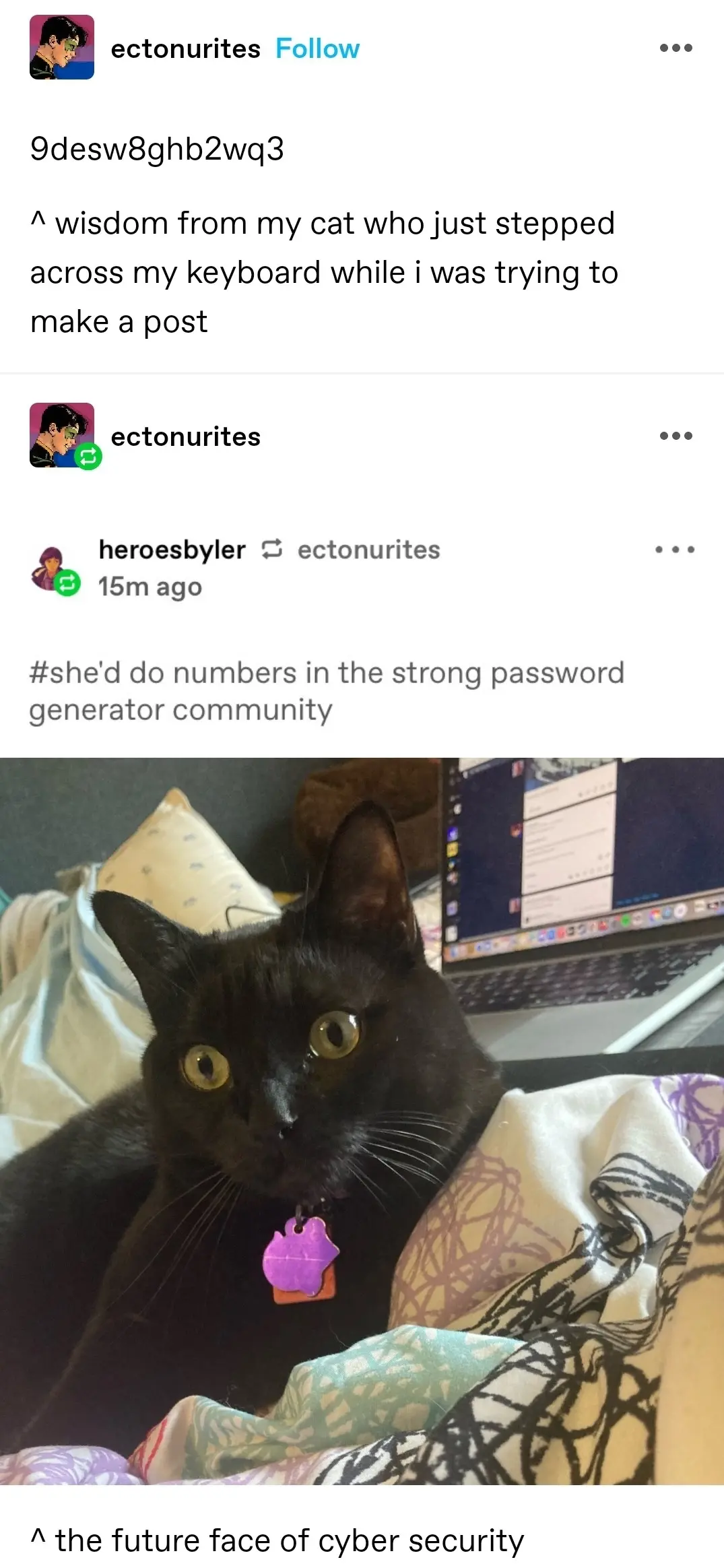this post was submitted on 15 Sep 2024
476 points (99.4% liked)
196
18156 readers
557 users here now
Be sure to follow the rule before you head out.
Rule: You must post before you leave.
Other rules
Behavior rules:
- No bigotry (transphobia, racism, etc…)
- No genocide denial
- No support for authoritarian behaviour (incl. Tankies)
- No namecalling
- Accounts from lemmygrad.ml, threads.net, or hexbear.net are held to higher standards
- Other things seen as cleary bad
Posting rules:
- No AI generated content (DALL-E etc…)
- No advertisements
- No gore / violence
- Mutual aid posts are not allowed
NSFW: NSFW content is permitted but it must be tagged and have content warnings. Anything that doesn't adhere to this will be removed. Content warnings should be added like: [penis], [explicit description of sex]. Non-sexualized breasts of any gender are not considered inappropriate and therefore do not need to be blurred/tagged.
If you have any questions, feel free to contact us on our matrix channel or email.
Other 196's:
founded 2 years ago
MODERATORS
you are viewing a single comment's thread
view the rest of the comments
view the rest of the comments

Use that, but only for the handful of passwords that you
a) need to remember regularly, even when you don't have access to your password manager b) need to be really secure
I'd say email and banking are the obvious ones. For everything else, rely on a good (self-managed, open source) password manager. Sure, a passphrase beats any human-memorable password, but it doesn't stand a chance against my 250bit entropy machine generated passwords. And thanks to KeepassXC I never have to type any of them. And sure, you can secure your password manager's database with a passphrase, if you're so inclined